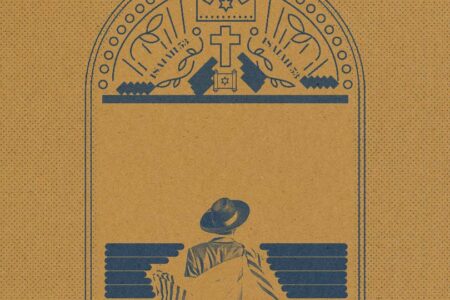From the Root of Jesse
A look at how God taught His people to recognize their Messiah
When my friend and colleague Steve Herzig lived in Chicago many years ago, he issued a challenge to some of his friends. The challenge seemed simple enough, but they soon noticed it had an unexpected twist.
“Please read these words from the Bible,” Steve would say, handing them a slip of paper bearing this verse: “But He was wounded for our transgressions, He was bruised for our iniquities; the chastisement for our peace was upon Him, and by His stripes we are healed.”
Glancing at the words, they immediately asked him to put away his New Testament. They didn’t want to hear about Jesus.
“But it’s not the New Testament,” Steve explained. “Those words come from the prophet Isaiah, from the Tanakh.”
Isaiah 53 identifies Israel’s Messiah. It is a clear and graphic picture of Jesus’ life, death, and resurrection from the Old Testament, or Tanakh—a Hebrew acronym for Torah, Prophets, and Writings. Unfortunately, most Jewish people have never read Isaiah 53.
The Rejected Shepherd
This important portion of Scripture begins, “Who has believed our report? And to whom has the arm of the LORD been revealed? For He shall grow up before Him as a tender plant, and as a root out of dry ground” (vv. 1–2).
The Messiah would come on the scene when the Davidic Kingdom appeared to be dried up and extinct. When Jesus was born, Israel had not had a king for some 580 years. The last king, Zedekiah, was 32 when the Babylonians dragged him into captivity after “he did evil in the sight of the LORD his God” (2 Chr. 36:12).
Yet the root of Jesse, King David’s father, was still alive. The words tender plant and root link the Suffering Servant of Isaiah 53 with the Davidic royal family (Isa. 11:1–2). They are Messianic terms that reveal God’s promise to raise up a new king of Israel. Though David’s family tree would be cut down to the “root” of Jesse, a new shoot would sprout—a new Shepherd for God’s Chosen People.
However, He would not seem royal. He would not be attractive or desirable. He would have “no form or comeliness; and when we see Him, there is no beauty that we should desire Him” (53:2). He would not even dress like royalty. He would have no splendor or majesty. The Hebrew word for “comeliness” was used to describe Israel’s king and his ornamental robes of state.
Rather, the Suffering Servant would be “despised and rejected by men, a Man of sorrows and acquainted with grief” (v. 3). Jesus, of course, fits this description perfectly. Though the rightful heir to the Davidic throne through both His mother and father, He was rejected by the religious leaders who were supposed to shepherd their people and teach them the ways of God.
Unfortunately, Israel’s religious leaders were no better shepherds in Jesus’ day than they were in the days of the prophets, when God sharply chastised them for failing to lead His people according to His Law.
In Isaiah, God called the shepherds “greedy dogs which never have enough” (56:11). In Jeremiah, He called them “dull-hearted” (10:21) and declared, “Therefore thus says the LORD God of Israel against the shepherds who feed My people: ‘You have scattered My flock, driven them away, and not attended to them. Behold, I will attend to you for the evil of your doings,’ says the LORD” (23:2).
Eventually, the Israelites paid for their disobedience by going into captivity, first at the hands of the Assyrians (722 BC) and then at the hands of the Babylonians (586 BC).
When the true Shepherd came—the Good Shepherd, the one the prophet Micah told them would be born in Bethlehem Ephrathah “to be Ruler in Israel, whose goings forth are from of old, from everlasting” (Mic. 5:2)—the evil shepherds rejected Him and plotted to kill Him. “He came to His own, and His own did not receive Him” (Jn. 1:11).
The Sacrificial King
A good shepherd is not like evil shepherds. He cares for his sheep and protects them. Jesus said, “I am the good shepherd. The good shepherd gives His life for the sheep” (10:11).
The “sheep” had gone astray. They “turned, every one, to [their] own way” (Isa. 53:6) and abandoned God. God’s Law demanded a sacrifice for their guilt, a sacrifice that Isaiah prophesied would find fulfillment in God’s chosen Servant: “But He was wounded for our transgressions, He was bruised for our iniquities; the chastisement for our peace was upon Him, and by His stripes we are healed” (v. 5).
Israel deserved to die for its sin. But the rejected Shepherd-King became Israel’s substitutionary atonement. This is a familiar concept in Judaism. In Leviticus 16, God provided a substitute for Israel’s sin in the form of a scapegoat on the Day of Atonement (Yom Kippur).
Once a year, the high priest would lay hands on the head of a goat, transferring Israel’s sins to it. Then the goat was released into the wilderness to signify the sins’ departure from God’s people. Another goat was sacrificed, and its blood temporarily purified and cleansed the Tabernacle and Temple where the Israelites worshiped.
But that sacrifice was temporary until God’s Servant became the final sacrifice, once for all; and “by His stripes we are healed” (Isa. 53:5).
The Suffering Servant
The New Testament writers were diligent to reveal that Jesus saw Himself as the Suffering Servant. They quoted Isaiah 53 nearly 50 times, and 29 of those quotations appear in the Gospels. One is Mark 10:45: “For even the Son of Man did not come to be served, but to serve, and to give His life a ransom for many.”
The phrase Son of Man identifies the King of Israel. Despite being the King to whom the Ancient of Days has given all dominion, power, and authority (Dan. 7:13–14)—despite being the King of kings and Lord of lords “whose goings forth are from of old, from everlasting” (Mic. 5:2)—Israel’s Messiah became human to become God’s Suffering Servant. Unlike the evil shepherds, Jesus chose to serve, rather than be served; and He sacrificed His own life to provide atonement and redemption, not only for the Jewish people, but for the entire world.
Three days later, He arose gloriously from the grave; and someday He will return to take His rightful place on the throne of King David.
This Christmas, why not read Isaiah 53 for yourself? (See page 16.) Ask yourself, as Steve Herzig asked his friends, Of whom does the prophet speak? If you sincerely seek the truth, the God of Abraham, Isaac, and Jacob will answer you. And you may be surprised by what He tells you!









great article
Dear Brother Chris
Thank you so very, very much for sharing the article of Israel’s Suffering Servant in Isaiah 53. I am extremely and very deeply interested in serving the Lord in ministry and in Jewish Missions and Evangelism Outreach Ministry. I rather serve than to be served by other people. I want to follow the example of my Blessed and Gracious Lord and Saviour Jesus Christ in ministering the Gospel Message and in serving other people.
I have a deep love and compassion for people who are not saved and who are hurting and who are broken-hearted. I desire and I want to love people the way Jesus loves people and I want to share with the Truth of Gospel with them in a spirit of meekness and of humbleness. Again, thank you for sharing this article of Isaiah 53 and may God richly bless you and your family and your loved ones as well as your ministry and your outreach and your service of the Full and of the True Gospel Message and of the Good News of our dearest and precious and blessed and gracious and loving and merciful and awesome Lord and Saviour Jesus Christ to both to the Jewish People and to the Gentile People.
From your dearest and closest
Brother and Friend in Christ
Love in Christ’s
Name
Brother Costis Chryssopoulos
Very good article. Thank you.